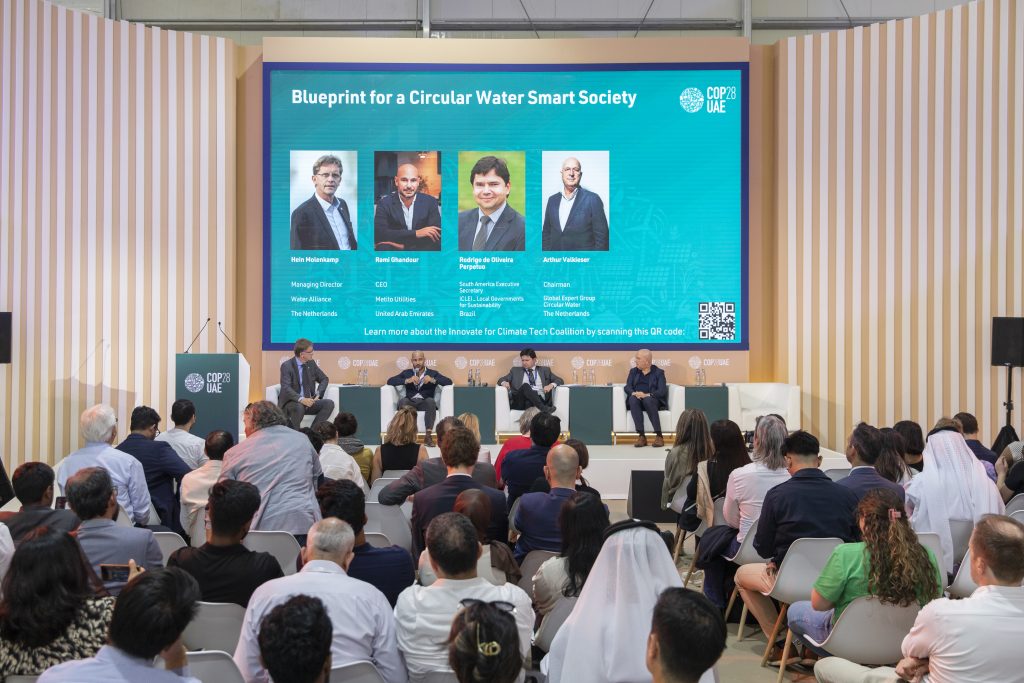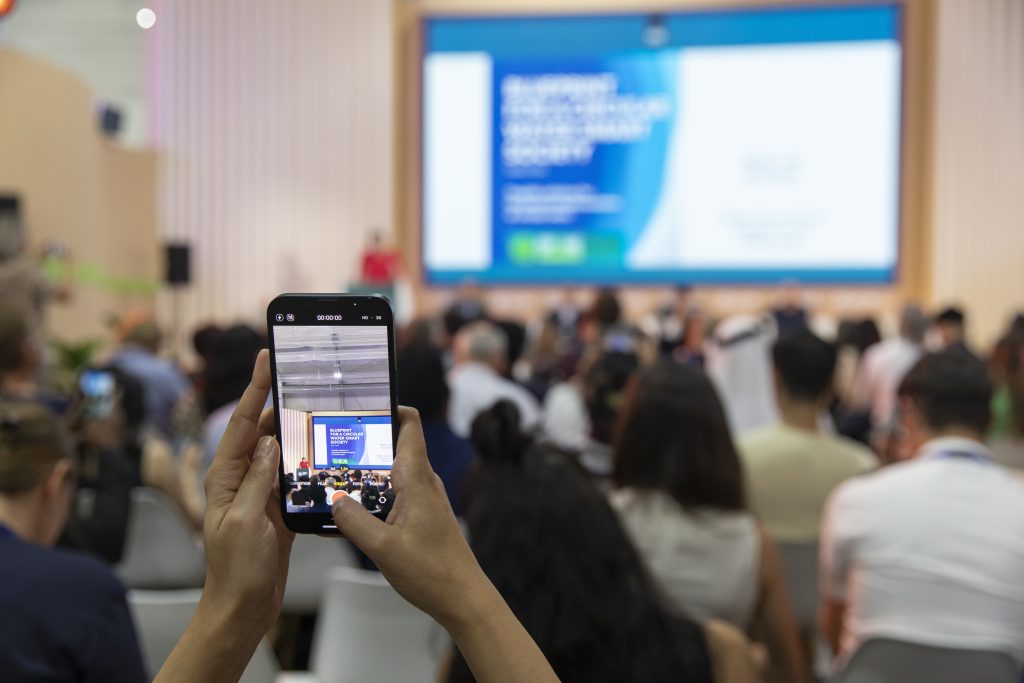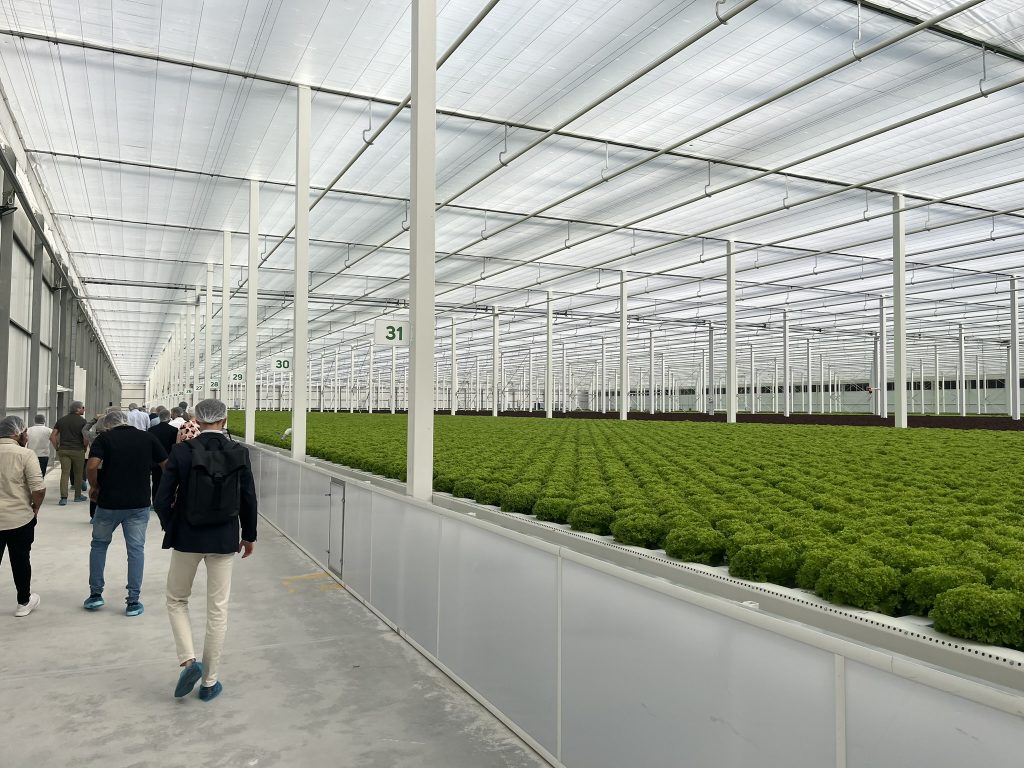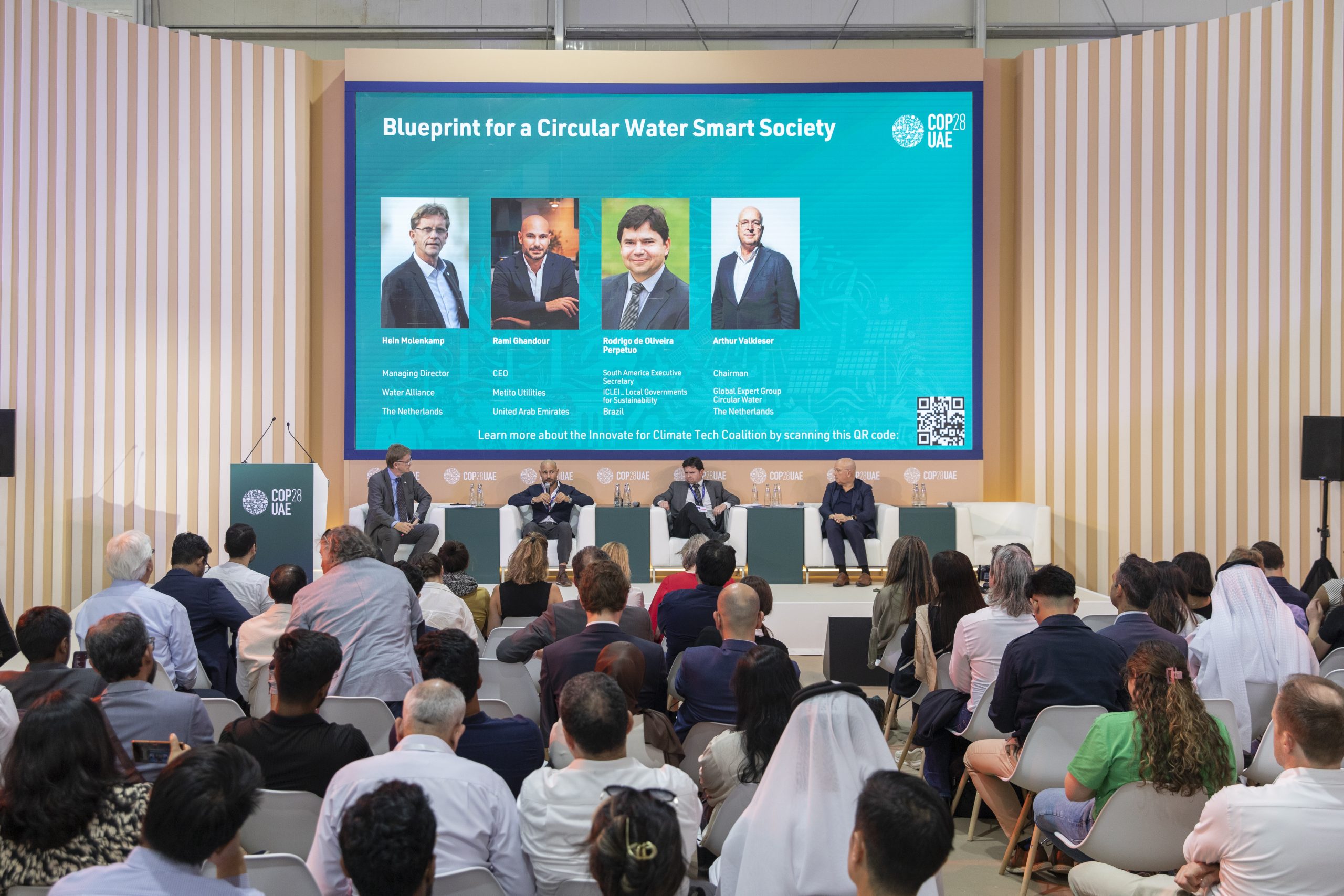The COP28 climate summit in Dubai will not have gone unnoticed by anyone. The Dutch water technology sector was also well represented.
For example, Hein Molenkamp (director of Water Alliance) and entrepreneur Arthur Valkieser of Hydraloop (also chairman of the Circular Water Expert Group of Water Alliance) once again brought attention to their vision document ‘Blueprint for a Circular Smart Water Society’. The blueprint offers concrete solutions for the practical application of circular water and a vision on water use in the built environment. To summarize that vision: use valuable tap water worldwide only for drinking water applications. You can almost always use circular water for showering, garden watering and industrial use. But rapid implementation of that vision proves difficult.
“There are rules and laws everywhere in the world and that makes sense,” says Hein Molenkamp. “Certainly when it comes to water management; safety must come first. But entrepreneurs are eager to implement the innovative solutions they have developed. This starts with testing, but then also with deployment on a larger scale. Existing laws and regulations too often delay the implementation of promising solutions. It is therefore important that governments in particular adapt legislation in such a way that we can test and scale up circular applications more and faster.”
Hein Molenkamp supervised several sessions during the COP28. Water envoy Meike van Ginneken, among others, gave a keynote at one of them. During a subsequent panel discussion, several speakers, including Rami Ghandour, CEO of Metito, Rodrigo de Oliveira Perpétuo, director of ICLEI South America and Arthur Valkieser, once again underlined the importance of not using precious and scarce tap water for non-drinking water applications in the built environment. Van Ginneken received the first copy of the Blueprint 2024 edition and encouraged the initiative.
“In short, the document goes back to the Sustainable Development Goals (SDGs), which were established by the UN in 2015,” explains Hein Molenkamp. “One of those specific goals is about the availability of clean drinking water and adequate sanitation for everyone. That doesn’t really make any progress. About 25% of the world’s population has no or insufficient clean drinking water. And Dutch companies have solutions for that.”

A second session on the Blueprint was introduced on December 10 by the renowned Bertrand Piccard, founder of the Solar Impulse Foundation (which includes approximately 1,600 innovative technologies). “A very inspiring speaker,” said Molenkamp. Also Piccard called for people not to wait and to speed up the implementation of new technologies. In addition to Molenkamp and Valkieser, the panelists at this session were: Alexei Levene from startup Desolenator, Durk Krol from Water Europe, Harm Duel from Deltares and Mohammed Al Surf from Tilad Environment.



During a number of network meetings of, among others, VNO-NCW at the residence of the NL Consul General in Dubai, Molenkamp spoke with various Dutch entrepreneurs and organizations active in the Gulf region. “Super useful and interesting,” says Molenkamp. “Director Angelo de Mul of Water Alliance member Pure Blue Water was there as well as Dutch greenhouse builder Van der Hoeven. The latter completed a hypermodern greenhouse horticulture project about 2 hours outside Dubai in the middle of the desert six months ago. I visited that together with representatives of the Top Sector Greenhouse Horticulture and Starting Materials. Lettuce is produced here on an assembly line in an almost fully automated and robotized process, showing that this can now be done very efficiently with little energy, nutrients and water.”
Dutch water startup Semilla Sanitation, part of Nijhuis Saur Industries, also put itself in the spotlight during the climate summit by participating in a pitch competition ‘Get in the Ring.’
In conclusion, Molenkamp says: “These are all wonderful examples of Dutch knowledge in the field of water. For me, the most important goal of the COP28 was to convince not only entrepreneurs, but especially governments and politicians from all countries in the world, that there is no need to be afraid to try out new techniques. It is very good that Dutch water technology has also shown what is possible; it is not just words. I therefore hope and expect that in Dubai we were more than just someone crying in the wilderness, or desert.”




